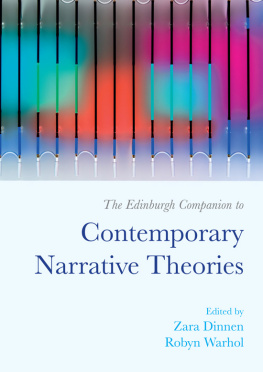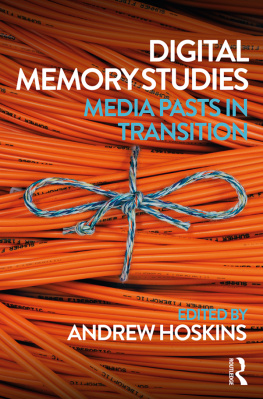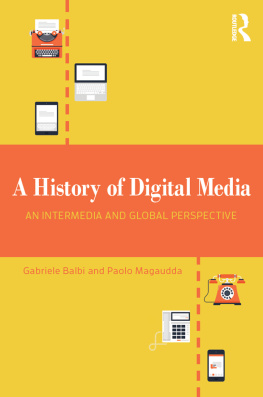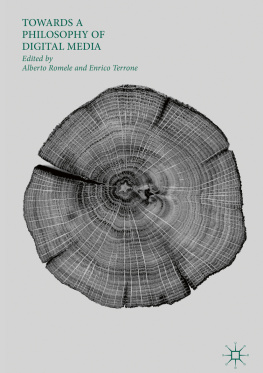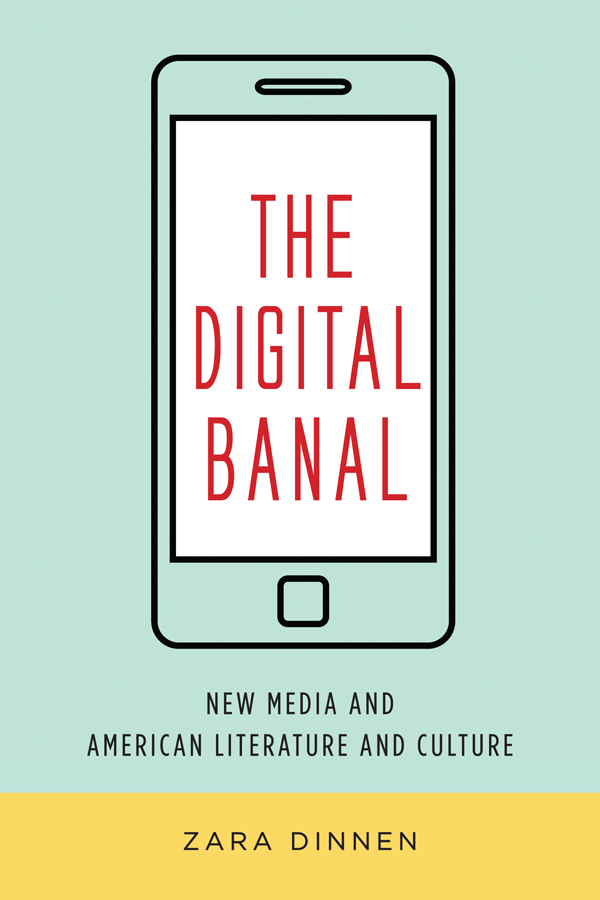Contents
Guide
Pagebreaks of the print version
THE DIGITAL BANAL
LITERATURE NOW
LITERATURE NOW
Matthew Hart, David James, and Rebecca L. Walkowitz, Series Editors
Literature Now offers a distinct vision of late-twentieth- and early-twenty-first-century literary culture. Addressing contemporary literature and the ways we understand its meaning, the series includes books that are comparative and transnational in scope as well as those that focus on national and regional literary cultures.
Caren Irr, Toward the Geopolitical Novel: U.S. Fiction in the Twenty-First Century
Heather Houser, Ecosickness in Contemporary U.S. Fiction: Environment and Affect
Mrinalini Chakravorty, In Stereotype: South Asia in the Global Literary Imaginary
Hctor Hoyos, Beyond Bolao: The Global Latin American Novel
Rebecca L. Walkowitz, Born Translated: The Contemporary Novel in an Age of World Literature
Carol Jacobs, Sebalds Vision
Sarah Phillips Casteel, Calypso Jews: Jewishness in the Caribbean Literary Imagination
Jeremy Rosen, Minor Characters Have Their Day: Genre and the Contemporary Literary Marketplace
Jesse Matz, Lasting Impressions: The Legacies of Impressionism in Contemporary Culture
Ashley T. Shelden, Unmaking Love: The Contemporary Novel and the Impossibility of Union
Theodore Martin, Contemporary Drift: Genre, Historicism, and the Problem of the Present
THE DIGITAL BANAL
NEW MEDIA AND AMERICAN LITERATURE AND CULTURE
ZARA DINNEN
Columbia University Press
New York

Columbia University Press
Publishers Since 1893
New York Chichester, West Sussex
cup.columbia.edu
Copyright 2018 Columbia University Press
All rights reserved
E-ISBN 978-0-231-54540-2
Cataloging-in-Publication Data available from the Library of Congress.
ISBN 978-0-231-18428-1 (cloth : alk. paper)
A Columbia University Press E-book.
CUP would be pleased to hear about your reading experience with this e-book at .
Cover design: Jordan Wannemacher
CONTENTS
I have never been very attached to the process of thinking just by myself, and so I am truly grateful to all those who have given their care and time by way of conversing, organizing, reading, advising, advocating, and hanging out. This book exists in the way it does because of the following people: Sam McBean (I talked the whole thing out with you), Holly Pester, Bianca Leggett, Rob Gallagher, Daniel Rourke, Tony Venezia, Anna Hartnell, Caroline Bassett, Gill Partington, Danielle Fuller, Sarah Palmer, Sandie Dinnen, Lucy Dinnen, and Matt Parker.
The research for this book began at Birkbeck, University of London. I was fortunate to be supervised by Joe Brooker, mentored by Anna Hartnell, and part of a PhD cohort that made study a lively thing. Before Birkbeck, there was Jay Prosser, who got me started with academic life. Since Birkbeck, there has been Caroline Bassett, who has consistently championed this project and who gave me the title of this book. I was supported throughout my MA and PhD by Arts and Humanities Research Council grants. As a lecturer at the University of Birmingham, I have been fortunate enough to work alongside brilliant colleagues. I especially want to thank Danielle Fuller for her generosity as a mentor, friend, and advocate. I have had much support from colleagues in the Centre for Contemporary Literature and Culture as well as across my department and school; Id especially like to thank Michele Aaron and Dan Moore for comments on this as a work-in-progress. At Birmingham I have also had the privilege of working out the ideas for this book while teaching the material on the Imagining the Digital modulethank you to all the students who made it a such formative experience for me. While working on this book I have presented at, participated in, and organized many conferences and events. Special thanks go to those present at C21 (2017, University of Brighton), What Happens Now (2016, University of Lincoln), MLA (2012, Seattle), the Art of English (2013, Queen Mary, University of London), the International Conference on Narrative (2013, Manchester), and all the Contemporary Fiction Research Seminars and their related symposia and events (200915, London).
David James suggested I submit this manuscript to the Literature Now series at Columbia University Press. I did, and now this book is in the worldthank you. The support from the series editors, Matthew Hart, David James, and Rebecca Walkowitz, and from Abby Graves, Miriam Grossman, Kathryn Jorge, and Philip Leventhal at Columbia University Press, has been immense; I appreciate the way you have all shaped and championed this project. I would like to thank the anonymous readers for Columbia University Press as well for their astute and constructive comments.
One of the best aspects of publishing this book is that it gives me the opportunity to thank my friends and family. Thank you, friends, for all the stuff that isnt work and for caring so much about the work. Lucy, you are the person I want to keep growing up with. Sandie, I can do this because you showed us how to have independent and loving lives, and because you sat and did your homework while we did ours. Matt, I have done this all with you; thank you for being in it all with me.
Earlier versions of material in this book have appeared as Things That Matter: Representing Everyday Technological Things in Comics, Studies in Comics 3, no. 2 (Winter 2013); Breaking Out That Perl Script: The Imaging and Imagining of Code in The Social Network and Catfish , European Journal of American Culture 32, no. 2 (Summer 2013); and In the Mix: The Potential Convergence of Literature and New Media in Jonathan Lethems Ecstasy of Influence, Journal of Narrative Theory 42, no. 2 (Summer 2012). This material is reproduced here with permission from the European Journal of American Culture , the Journal of Narrative Theory , and Studies in Comics .
T he digital banal is the condition by which we dont notice the affective novelty of becoming-with digital media. In other words, the way we use media makes us unaware of the ways we are co-constituted as subjects with media. In a culture where Facebook can claim to be a platform that simply helps us to connect and share, it is vital to consider how we end up at a place where we think such a particular technological instantiation of sociality is instead a general situation that we have always had coming. Technology companies make banal rhetoric out of revolutionary energy and progress; the iPhone 4 was released to the fanfare of This Changes Everything. Again. A platform such as Facebook is part of a media ecology wherein the massive material impact of servers is effaced by metaphors of the Cloud and stories of Silicon Valley liberalism efface the bodies and voices of smartphone factory workers in China and rare-earth-mineral miners in the Democratic Republic of the Congo. Digital media works by reifying the political and social arrangements it instantiates as novelty objects (devices) and narratives of newness (the sharing economy, and before that, cyber-utopianism), while effacing (by blocking access to) the affective stakes of life determined by algorithms and life at the edge of the earths resources. Narrative culture records these stakes in ways that we can critically apprehend. In The Digital Banal I examine a variety of fictional works that set out to recover novelty from the banal, to recover the novelty of living with digital media from scenes of the digital banal. What may elsewhere be written off as just another detail of contemporary lifea fleeting expression of technology within a narrative about something elseis here sought out as a potentially generative encounter with the affective novelty of new media.


